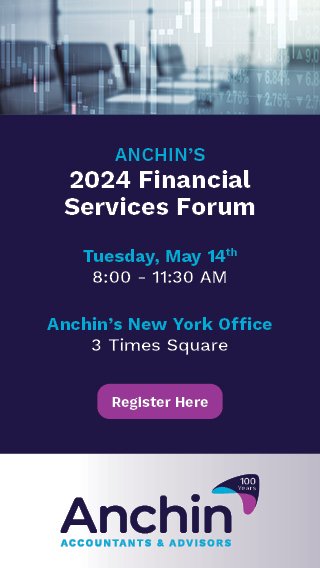Keeping up with Quantopian’s John Fawcett
/Last December, I had the chance to sit down with John Fawcett in a Boston coffee shop soon after his company, Quantopian, announced its shock-and-awe Series C. That round had been led by Andreessen Horowitz and included a host of top VCs, along with Steve Cohen’s Point72 Ventures.
As a seasoned entrepreneur, Fawcett knew that taking in a fresh $25 million of capital from a Who’s Who of heavyweights wasn’t cause for celebration. So while he was generous with his time, I understood that he was eager to get back to his office as soon as we were done.
2017 Challenges
When we connected again recently, Fawcett sounded like the same guy I interviewed last year: determined, grounded and braced for battle. But during 2017, Quantopian has had to confront a series of challenges, including a harsh environment for many systematic hedge fund strategies, the departure of the company’s well known CIO, Jonathan Larkin, and a healthy heap of schadenfreude within the mainstream hedge fund industry.
In November, The Wall Street Journal’s Gregory Zuckerman summed up the company’s turbulence in a widely read piece that provided fuel to its naysayers. In the article, Zuckerman reported that Quantopian’s fund had lost three percent since it started trading in June and suggested that it could be encountering difficulties in attracting the quantitative talent needed to thrive.
A “Slightly Different Model” for Algorithm Fund Selection
While Fawcett didn’t dispute the basic facts in Zuckerman’s article, he emphasized that he was proud of the company’s progress despite a difficult environment: “There's a lot of noise in the media about our performance, but the important thing to me is that our community has produced more than one algorithm that is producing alpha.” Nevertheless, he acknowledged that the company has a lot more work to do: “The hard part for us is the selection of the algos that go into the portfolio. It’s a difficult problem, but we’ve been focused on improving the selection process by completely automating it.” “Does that mean you aren’t replacing Larkin?” I asked. Fawcett confirmed that the company was looking for new leadership and elaborated on the kind of person he was after:
“We’re creating an investment process, so we need professional investors. But the job of our investment team will be to maintain and modify our investment software. So if our process is fully automated, we’re not going to manually override the process and change the construction of the portfolio when we feel like it. We're going to go back to the process and find out what caused it to produce a portfolio we didn't like. We’ll need leadership to do that, but we’re aiming to run a slightly different model, so we’ll need a different kind of leader.”
Institutional Use and IP Protection
Beyond Quantopian’s algorithm selection challenge, Fawcett was happy to discuss the growing use of Quantopian’s platform by institutions that use it to test and validate their strategies. Highlighting Quantopian’s use by emerging managers in particular, and recent partnerships with companies like TruValue Labs, could sound like a pivot, but Fawcett argued that increasing institutional use of Quantopian’s platform sends a strong signal to the algorithm-creator community. He also confirmed that the company would soon be rolling out a program specifically geared to emerging managers who have been using its platform as part of their marketing efforts, suggesting that these managers could be a natural source of new strategies for the fund.
Concerns around IP protection have been an additional question mark surrounding the Quantopian model, but on this topic, Fawcett was quite clear: “The IP created on Quantopian belongs to the person who created it. That's in our terms of use. It's part of the culture of our company. It's part of the personality of our community.” Still, he acknowledged that it remains a point of concern for some algorithm creators: “I've always talked about the fact that we try to mitigate the IP risk as much as possible, and we're very dedicated to minimizing it. But it is true, you do have to trust us. But I think that as we increase the size of our fund and the allocations that we can make, the risk/reward will increasingly shift in favor of trusting Quantopian with your IP.”
Industry Performance Blues
With performance of leading quantitatively oriented hedge funds like Bridgewater’s Pure Alpha strategy and others rumored to be down for the year through Q3, I asked whether Quantopian’s business model was swimming upstream during a time when a rising number of institutions are running factor models and the democratization of data is making life harder for quants. Fawcett pushed back on the bleak scenario I posed, but conceded that the hunt for alpha is going through a transition. When pressed, Fawcett discussed the increasing importance of data coming from the real economy, citing estimates suggesting that the growth of data is vastly outstripping the spending on technologies to analyze it. Given that, I asked if Quantopian has any plans to allow algorithm authors to use off-platform data in the company’s contests. Fawcett confirmed our hunch that the company would be rolling out a new feature to allow members to export off-platform data to Quantopian’s format. However, he pointed out that in order to qualify for inclusion into the fund, the data would have to clear a higher bar of examination and testing.
New Asset Classes
The company’s previously announced foray into futures has not yet resulted in any futures strategies being deployed into the fund. That’s because the futures strategies need to accrue a longer track record before they are considered; however, Fawcett sounded enthusiastic about their potential. He also indicated that international equities would be the next market Quantopian would tackle, adding that there are a lot of “interesting ideas” about making algorithms portable across markets.
Sleeping at Night
Nobody ever said that disrupting the intense and closeted world of quantitative finance would be easy, but I came away from our discussion feeling like Quantopian has a disciplined, clear plan of action in place. But unlike most start-ups, the company’s progress can be measured very specifically on performance metrics, which means Quantopian’s challenges are amplified. Nevertheless, while Fawcett declined to provide me with a fund performance update, he assured me that he isn’t losing sleep: “Everything I know about the world tells me that if you can be systematic and rigorously test your hypothesis, you will make progress. That’s what we’re doing, so yes, I can sleep soundly at night.”






